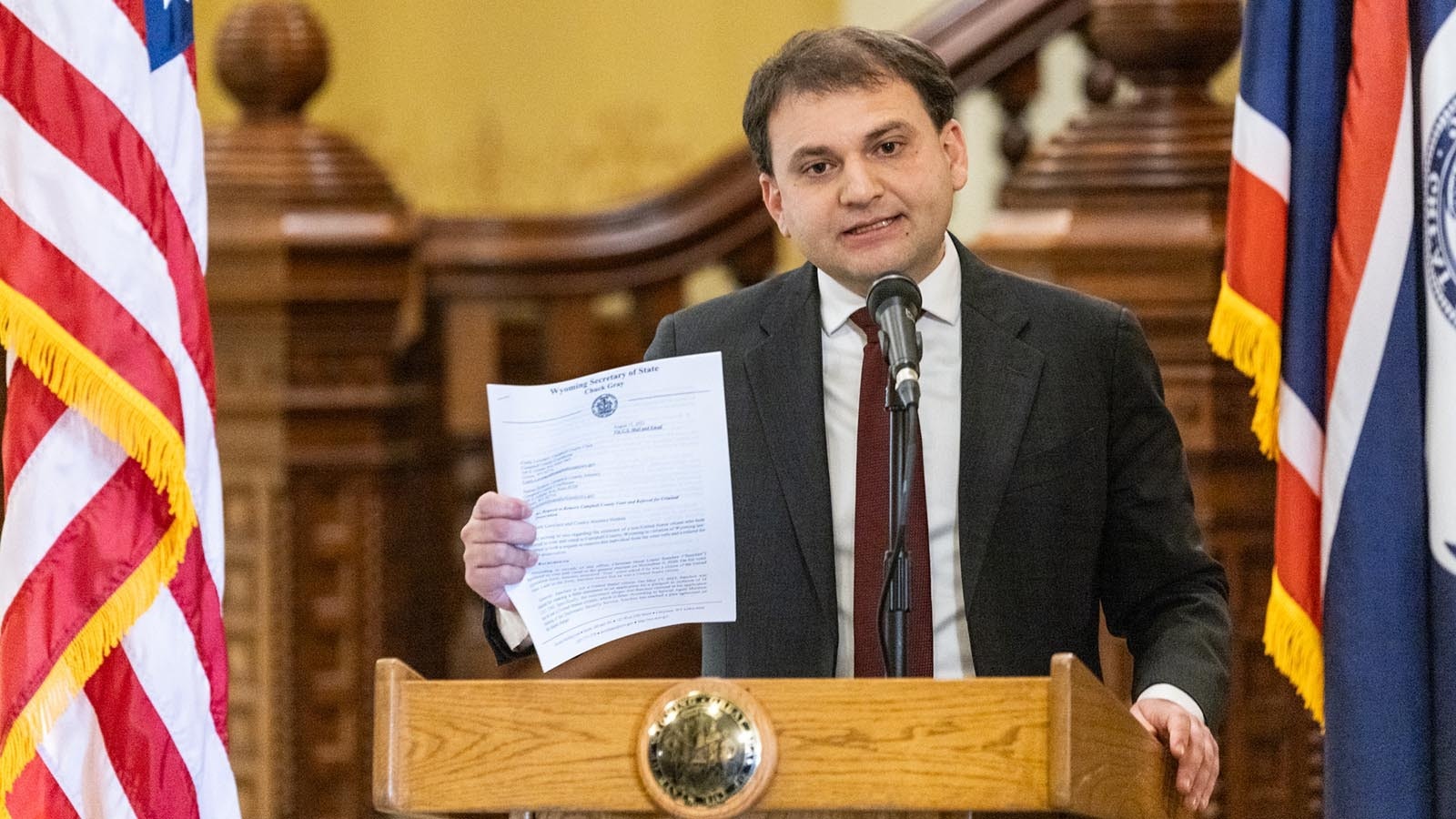A doctor who lost his position on the Wyoming Board of Medicine after criticizing a medical group and an individual doctor who lobbied against child sex-change bans will not be restored to the board at this time, a federal judge ruled Thursday.
Gov. Mark Gordon asked Dr. Eric Cubin to step down from the Wyoming Board of Medicine in April. Ultimately, Cubin resigned, court documents say.
The shakeup happened after Cubin started heated exchanges with the Wyoming Medical Society and with Sheridan-based pediatrician Dr. Michael Sanderson, who is also president of the Wyoming chapter of the American Academy of Pediatrics, about those parties’ opposition to Senate File 99. Originally called “Chloe’s Law” and now a law on Wyoming’s statute books, the law bans surgeries, puberty blockers and cross-sex hormones for child sex-change procedures.
Cubin supported the ban. The Wyoming Medical Society and Sanderson did not support them wholly.
In February, Cubin sent an email to members of the Wyoming House of Representatives saying he was saddened that the Wyoming Medical Society “has essentially been hijacked by the far left.” He accused Sanderson of suppressing relevant points from a medical group that opposes child-sex-change procedures.
In April, Gordon asked Cubin to step down from the board, saying that Cubin had compromised his neutrality despite being expected to handle physicians’ disciplinary hearings on matters like this without bias.
Not Likely To Succeed
Cubin sued Gordon in August, alleging his free-speech rights have been violated. Then on Oct. 1, Cubin asked U.S. District Court Judge Scott Skavdahl to issue a preliminary injunction, restoring Cubin to the board.
Skavdahl denied that request Thursday after a hearing. Cubin did not show that he’s likely to win his lawsuit, and Cubin didn’t show that he’ll be irreparably harmed if not restored to the board while his lawsuit is ongoing, Skavdahl ruled.
“The real issue here is not that Dr. Cubin expressed his personal support of (Chloe’s Law) to the Wyoming House,” wrote the judge. “Instead, the real issue is that Dr. Cubin’s comments to the Wyoming House went beyond his support for (the bill) and into his disputes with WMS and specific doctors, the same doctors who may appear before the Board to answer a complaint with their medical licenses and livelihoods in jeopardy.”
There were a few disputed points.
Essentially, Gordon conceded that Cubin has a free speech right but pointed to courts’ deference toward government employers that are trying to limit disruption in their fields. There was also a dispute about whether Gordon’s April push to remove Cubin was “soon after” or long after Cubin’s allegedly disruptive speech.
It was soon after, the court concluded – a characterization that helped to uphold Gordon’s decision as a response to disruption rather than an arbitrary maneuver.
“When a Board member sits in judgement of a licensee, they of course owe the licensee a fair and impartial consideration of the matter, but they also owe the appearance of fairness and impartiality,” wrote Skavdahl. “Any of the WMS leadership appearing before Dr. Cubin in his role as a Board member could reasonably question whether they would receive fair consideration from him in light of Dr. Cubin’s allegations to the Wyoming House.”
Disappointed, But …
Cubin’s attorney Buck Dougherty of the Liberty Justice Center said the judge’s denial is disappointing, but certainly not a death knell.
“(We’re) a little disappointed at the result, at least the initial result,” said Dougherty, adding that they are looking at their available legal options.
It is possible for Dougherty to appeal Skavdahl’s denial to a higher court within 30 days, he noted, though he didn’t say outright whether he is doing so.
The next-highest court from Skavdahl’s is the 10th Circuit Court of Appeals.
Though Skavdahl said Cubin is not likely to succeed in this case, Dougherty said he’s seen multiple cases go a different way at trial than the judge predicted in a preliminary injunction order.
“It’s not a bad omen,” said Dougherty. “There are many situations where the court denies a preliminary injunction initially, and then at trial the party wins – and vice versa.”
Dougherty said he looks forward to continuing the case and believes he and Cubin will win in the end.
Clarification - this story has been updated to better reflect the position of the ban’s opponents.
Clair McFarland can be reached at clair@cowboystatedaily.com.





